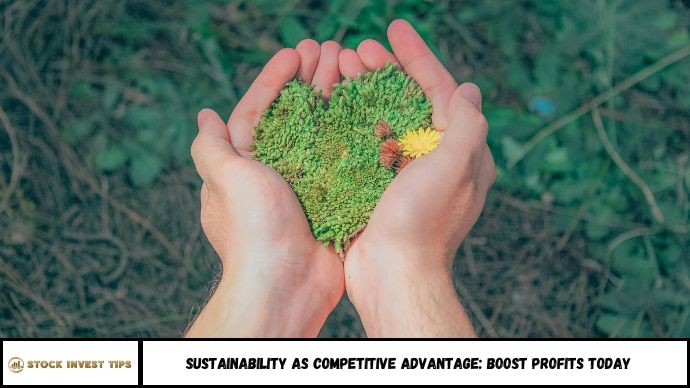Sustainability as a competitive advantage is more than a trend—it’s a business imperative. Companies that embrace sustainable practices improve brand trust, reduce costs, and stay ahead of regulations. This article explores how going green drives profitability, enhances brand loyalty, and positions companies for long-term success. Learn practical strategies, backed by real-world data, to implement sustainability for business growth.
Introduction: Is Sustainability the New Business Currency?
In a world grappling with climate change, resource scarcity, and increasing consumer awareness, businesses face a pressing question:
Can sustainability drive profit instead of just adding cost?
The answer is a resounding yes. Companies like Patagonia, Unilever, and Tesla have proven that sustainable practices don’t just protect the environment—they create a powerful competitive edge.
In this article, we’ll explore:
- Why sustainability matters in today’s business world
- How companies benefit from adopting sustainable strategies
- Real-world examples and statistics to prove the case
- Actionable steps to implement sustainability for long-term growth
Why Sustainability Gives Businesses a Competitive Edge
1. Shifting Consumer Expectations
Today’s consumers are more eco-conscious than ever.
- 73% of global consumers say they would change their consumption habits to reduce environmental impact (NielsenIQ, 2023).
- Gen Z and millennials, who now dominate the purchasing market, prioritize sustainability when choosing brands.
Benefit: Brands that embrace sustainability can win trust, boost loyalty, and command premium prices.
2. Cost Savings and Efficiency Gains
Sustainable practices often lead to operational efficiencies.
- Companies that improve energy efficiency reduce operating costs by up to 20% annually (McKinsey, 2024).
- Walmart’s sustainability initiatives saved over $1 billion in operational costs.
Key Strategies:
- Use renewable energy sources
- Optimize supply chains
- Reduce waste and water usage
3. Regulatory Compliance and Risk Reduction
Environmental regulations are tightening across the globe.
- The EU Corporate Sustainability Reporting Directive (CSRD) will impact over 50,000 companies by 2026.
- Non-compliance can lead to fines, lawsuits, and brand damage.
Proactive sustainability reduces these risks and keeps your company future-proof.
4. Investor and Stakeholder Appeal
Sustainable companies attract more capital.
- ESG (Environmental, Social, and Governance) funds grew to $41 trillion in 2023.
- BlackRock, the world’s largest asset manager, demands climate risk disclosure from its portfolio companies.
Result: Companies with solid sustainability frameworks enjoy higher valuations and investor confidence.
5. Innovation and Market Differentiation
Sustainability sparks innovation.
- Tesla revolutionized the auto industry by building a sustainable electric vehicle brand.
- IKEA’s circular economy strategy recycles furniture and reduces resource consumption.
Competitive Advantage: Sustainability opens new markets and fuels product differentiation.
Steps to Implement Sustainable Practices
1. Start with a Sustainability Audit
Understand where your company stands:
- Measure energy, water, and waste outputs.
- Assess supply chain practices.
- Set a baseline for improvement.
2. Set Measurable Goals
Adopt SMART goals:
- Reduce carbon emissions by 25% over 3 years.
- Shift to 100% renewable energy in all facilities by 2030.
3. Engage Stakeholders
Involve employees, partners, and customers:
- Launch internal sustainability training.
- Encourage employee-led green initiatives.
- Promote transparency through sustainability reports.
4. Invest in Sustainable Technologies
Consider:
- Solar panels and green building certifications (e.g., LEED)
- Electric vehicle fleets for transportation
- AI-powered systems to optimize energy use
Real-World Success Stories
Unilever
- Sustainable Living Brands grew 69% faster than the rest of the business and delivered 75% of company growth.
Patagonia
- Public commitment to environmental ethics built a cult-like following.
- Recycled products and “Worn Wear” resale programs increased lifetime customer value.
FAQs
1. Why is sustainability important for businesses?
It improves efficiency, reduces risk, and meets customer demand while benefiting the planet.
2. Can sustainability really increase profits?
Yes, through cost savings, brand loyalty, and innovation-driven growth.
3. What industries benefit most from sustainability?
All do, but especially manufacturing, retail, energy, and transportation.
4. How can small businesses be more sustainable?
Start with energy audits, waste reduction, and partnering with local green vendors.
5. Are there grants or incentives for sustainable business?
Yes, many governments offer tax credits, rebates, and funding for green initiatives.
6. What is ESG and how does it relate to sustainability?
ESG refers to Environmental, Social, and Governance metrics that measure a company’s ethical impact and sustainability practices.
Conclusion
Sustainability is no longer optional—it’s a business strategy that fuels growth, attracts customers, and safeguards the future. By integrating sustainable practices, companies not only help the planet but also build a resilient and competitive business.
Ready to make sustainability your edge? Start today—reduce waste, rethink energy, and reshape your impact.

